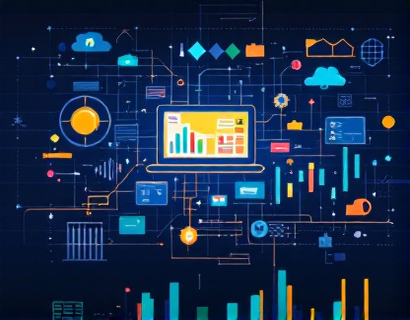AI Service Innovations: Transforming Industries with Advanced Solutions
The integration of artificial intelligence into various sectors has ushered in a new era of efficiency and innovation. As industries continue to evolve, the demand for advanced AI solutions grows exponentially. This article delves into the transformative power of AI services, highlighting how they are reshaping businesses and driving success across multiple domains. From tech enthusiasts to business professionals, this comprehensive overview serves as a valuable resource for anyone looking to harness the potential of AI.
Understanding AI Services
AI services encompass a broad range of applications, from machine learning and natural language processing to computer vision and predictive analytics. These services are designed to automate complex tasks, provide insights from vast datasets, and enhance decision-making processes. By leveraging AI, organizations can streamline operations, reduce costs, and gain a competitive edge in their respective markets.
The Role of AI in Different Industries
AI's impact is felt across various sectors, each with unique challenges and opportunities. In healthcare, AI services are revolutionizing patient care through advanced diagnostic tools and personalized treatment plans. The financial industry benefits from AI-driven fraud detection and risk management systems, ensuring greater security and compliance. In manufacturing, AI optimizes production lines and predictive maintenance, minimizing downtime and maximizing efficiency.
Enhancing Productivity with AI
One of the most significant advantages of AI services is their ability to enhance productivity. Automation of repetitive tasks allows employees to focus on higher-value activities, leading to increased output and job satisfaction. AI-powered tools can analyze large volumes of data quickly, providing actionable insights that inform strategic decisions. For instance, in retail, AI-driven analytics help in understanding customer behavior, optimizing inventory, and personalizing marketing campaigns.
AI in the Service Sector
In the service industry, AI services are transforming customer experiences through chatbots and virtual assistants. These AI-driven tools offer 24/7 support, handling queries and resolving issues efficiently. In hospitality, AI can predict customer preferences and tailor services accordingly, enhancing guest satisfaction. Additionally, AI-powered recommendation systems in travel and entertainment sectors personalize user experiences, driving engagement and loyalty.
AI in Manufacturing and Logistics
The manufacturing and logistics sectors have seen substantial improvements thanks to AI. Predictive maintenance uses AI to forecast equipment failures, reducing unexpected downtime and maintenance costs. AI-driven supply chain management optimizes routes and inventory levels, ensuring smooth operations and cost savings. In warehouses, AI-powered robots and drones streamline picking and packing processes, increasing speed and accuracy.
AI in Agriculture
Agriculture is another sector where AI is making a significant impact. Precision farming utilizes AI to monitor crop health, optimize irrigation, and predict yields. AI-driven analytics help farmers make data-informed decisions, reducing resource waste and increasing productivity. Drones equipped with AI can survey large areas, providing real-time data on soil conditions and crop status, enabling timely interventions.
AI in Education
In education, AI services are personalizing learning experiences and improving outcomes. Adaptive learning platforms use AI to tailor content to individual student needs, ensuring that each learner progresses at their own pace. AI-powered tutoring systems provide instant feedback and support, enhancing the learning process. Additionally, AI can help educators identify at-risk students and intervene early, fostering a more inclusive and effective educational environment.
Challenges and Considerations
While the benefits of AI services are undeniable, there are challenges that organizations must address. Data privacy and security remain top concerns, as AI systems often require access to sensitive information. Ensuring compliance with regulations and maintaining transparency in AI decision-making processes are crucial. Moreover, the integration of AI requires a skilled workforce, and organizations must invest in training and development to harness these technologies effectively.
Future Trends in AI Services
The future of AI services holds exciting possibilities. Advancements in machine learning and deep learning will continue to enhance the capabilities of AI systems. The rise of edge computing will enable more efficient and real-time data processing, reducing latency and improving performance. As AI becomes more integrated into daily life, the focus will shift towards ethical AI, ensuring that these technologies benefit society as a whole.
Conclusion
AI services are at the forefront of a technological revolution, offering transformative solutions that enhance productivity and drive success across various industries. By embracing these advanced tools, organizations can stay competitive, innovate, and achieve their goals. Whether in healthcare, finance, manufacturing, or any other sector, the potential of AI is vast and continually expanding. As the landscape evolves, staying informed and adaptable will be key to unlocking the full potential of AI.










































